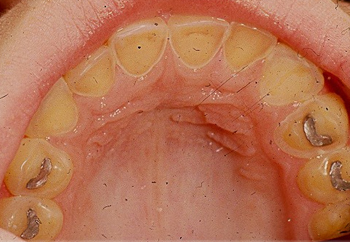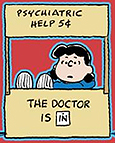Treatment of bulimia requires a combined
approach of nutrition and psychiatric counseling.
- Individualized plan centering on proper
nutrition and behavior modification.
- Basal energy needs plus 300-400
cal/day

- Controlled portions of regular diet
and snacks.
- Stabilize fluid and electrolyte
intake to prevent edema.
- Decrease sugar intake; stress
importance of other key nutrients.
- Prevent vomiting to eliminate
further enamel erosion (perimolysis).
Because poor body image and low self-esteem
underlie bulimia, psychotherapy is an important aspect of treatment.
Many people with bulimia feel isolated and shamed by their bingeing and
purging.
-
 Cognitive
behavior therapy focuses on the thoughts that envelop food and
eating. One of the main goals is to become more self-aware of the
relationship to food. Cognitive
behavior therapy focuses on the thoughts that envelop food and
eating. One of the main goals is to become more self-aware of the
relationship to food.
- Behavior therapy uses rewards
and repercussions to change the behaviors of bingeing and purging.
Recognize triggers for bingeing and purging and to interrupt the
“rituals” of bulimic episodes by substituting relaxation and other
coping strategies.
- Family therapy looks at the
family dynamics that may contribute to bulimia and often includes
some therapy sessions without the patient. Family therapy is often
important when the person with bulimia denies the eating
disorder.
Mrs. Franklin can be helped and
fortunately, there have been no ill effects to her baby.
Next is the case of a
very sociable man. |